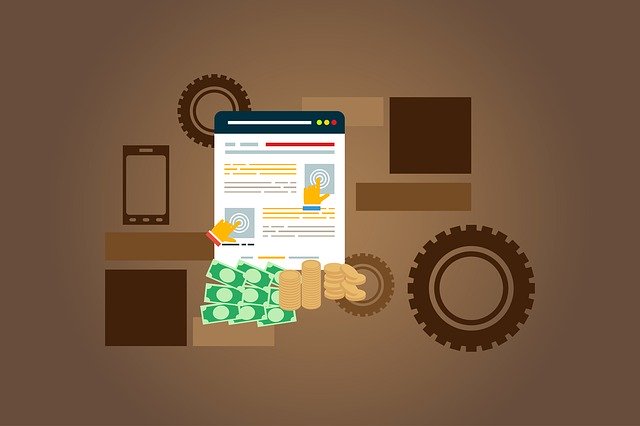
Your B2B company's success is heavily dependent on its ability to generate sales leads. Sales leads are prospective buyers to whom you can pitch your B2B company's products or services. In recent years, however, many B2B companies have shifted to account-based marketing (ABM) as an alternative to traditional sales lead generation practices. What is ABM exactly, and how does it stack up against traditional sales lead generation practices?
What Is Sales Lead Generation?
Before delving into the fundamentals of ABM, you should familiarize yourself with sales lead generation. The term "lead generation" refers to acquiring the contact information of prospective buyers who may be interested in buying your B2B company's products or services. When you acquire a prospective buyer's contact information, you can use it for sales purposes. You can contact these prospective buyers or "sales leads" to nurture them through your B2B company's sales funnel. If all goes well, the prospective buyer will make a purchase.
Sales lead generation practices can be classified as either inbound or outbound. Inbound sales lead generation practices involve attracting prospective buyers voluntarily. If a prospective buyer voluntarily seeks out your B2B company to provide his or her contact information, it's considered an inbound sales lead. In comparison, outbound sales lead generation practices involve the direct promotion of your B2B company for the purpose of acquiring prospective buyers' contact information.
Traditional sales lead generation practices deployed by B2B companies include the following:
- Cold calling
- Emailing
- Social media marketing
- Blogging
- Video marketing
- Distributing product or service guides
- Infographic creation
Why Sales Lead Generation Is Important
In the B2B industry, sales lead generation is critically important because it facilitates sales. You can't expect to generate sales if you blindly call or email random individuals. Regardless of what your B2B company sells, it probably has a specific audience of buyers. To generate sales, you must acquire the contact information of these prospective buyers so that you can specifically target them with your sales activities.
With sales lead generation, you'll also have a better understanding of your B2B company's target audience. As you acquire sales leads, you can look into their respective information -- as well as the businesses for which they work -- to gain a clearer picture of their needs. Using this information, you can create stronger sales messages that drive sales success. Now that you know of lead generation, let's take a look at the fundamentals of ABM.
What Is ABM?
ABM is a B2B concept that involves the alignment of sales and marketing teams to target specific accounts with highly customized and personalizes sales messages. Rather than treating all prospective buyers the same, sales reps treat them uniquely and independently of each other. This is the fundamental concept of ABM. With ABM, sales reps create personalizes messages that resonate with prospective buyers.
ABM is typically used for lead nurturing and direct selling; it's not used for sales lead generation. To perform ABM, sales reps need leads. After all, sales reps can't create personalized messages for a prospective buyer until they've acquired the prospective buyer's contact information. After acquiring a sales lead, sales reps can structure call scripts, emails or other messages that are personalized to the buyer.
Many B2B companies use a linear approach to lead nurturing by treating all their sales leads the same. After creating a sales message, they'll send it to all their sales leads, hoping that the message will move some of their leads through their respective sales funnel. ABM differs in the sense that it uses many different sales messages -- one for each lead or group or similar leads.
The Benefits of ABM
When compared to traditional sales and marketing activities, ABM often yields a higher return on investment (ROI). A survey conducted by ITSMA found that over four in five B2B companies experience a higher ROI with ABM. A separate survey cited by Marketo found that 97% of B2B companies experience a higher ROI with ABM. Why is ABM so effective at driving a high ROI?
The reason ABM yields a high ROI is that it focuses on personalized sales messages. Prospective buyers are more likely to respond to a personalized message than a generic message. If you're trying to sell a specific product to a prospective buyer, you can research his or her business beforehand. With this information in hand, you can create a series of personalizes sales messages to nurture the prospective buyer through your B2B company's sales funnel. The end result is a higher conversion rate that ultimately drives a higher ROI than that of traditional sales and marketing activities.
A Little of Both
One way you can get identified projects, or high quality sales leads is with the Project Reports by SalesLeads. These project reports are identified projects tracked by researchers. You can begin to call on them as well as nurture them at the same time. This will likely increase the chance of the sales lead moving through the sales funnel faster.
You don't have to choose between sales lead generation and ABM. You can use both strategies to drive sales success for your B2B company. Lead generation is a broad strategy that involves acquiring the contact information of prospective buyers, whereas ABM is a more targeted lead nurturing strategy that involves the use of customized and personalizes sales messages. Combining these two strategies will help your B2B company succeed.
What to learn more? Get in Touch
Latest Posts
-
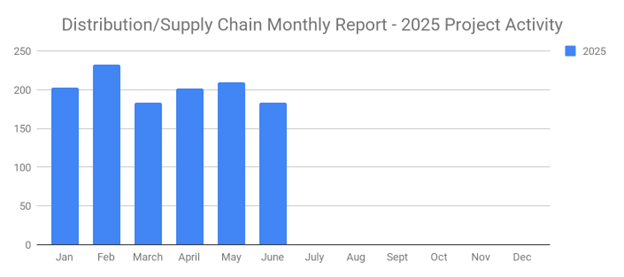
June's New Distribution and Supply Chain Planned Projects Return to March’s 183 Confirmed Figure
-
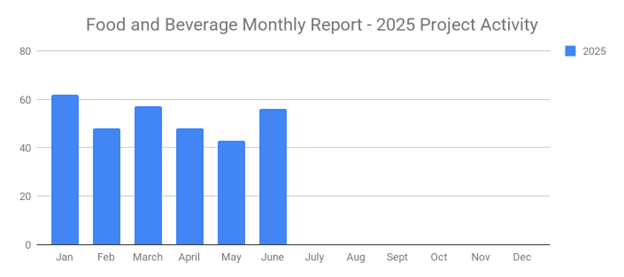
Food and Beverage Rebounds with 56 New Planned Projects Igniting Growth After Decline
-
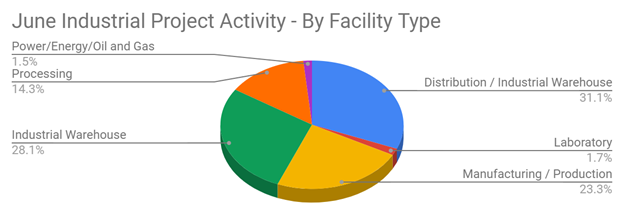
June 2025’s New Industrial Construction Projects Grew 7% Month-Over-Month
-
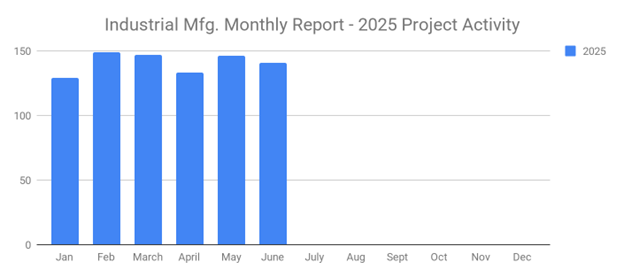
Q2 Industrial Manufacturing Soars 31% for Planned Projects Over $100M; June Planned Industrial Projects Hit 141

